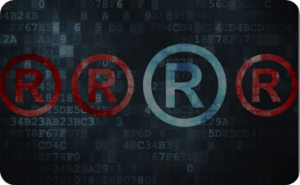In the realm of trademark law, the case of Moseley et al. v. V Secret Catalogue, Inc., et al. stands as a pivotal decision in understanding the concept of trademark dilution. This Supreme Court case, decided on March 4, 2003, delves into the intricacies of the Federal Trademark Dilution Act (FTDA) and sets a precedent for what constitutes trademark dilution. In this blog, we will explore the details of the case, the Court’s interpretation of trademark dilution, and the implications for businesses and trademark law. The focus keyword for this blog is “trademark dilution.”
Background of the Case
The case began when Victor and Cathy Moseley, owners of a retail store initially named “Victor’s Secret,” received a complaint from V Secret Catalogue, Inc., the owner of the VICTORIA’S SECRET trademarks. The complaint was based on the Moseleys’ use of a similar name for their store, which was perceived as potentially diluting the VICTORIA’S SECRET brand. In response, the Moseleys changed their store’s name to “Victor’s Little Secret,” but this did not satisfy V Secret Catalogue, Inc., leading to a lawsuit alleging trademark dilution under the FTDA.
The District Court and Appeals Court Decisions
The District Court initially ruled in favor of V Secret Catalogue, Inc., finding that the use of “Victor’s Little Secret” diluted the VICTORIA’S SECRET trademark. The Sixth Circuit Court of Appeals affirmed this decision, emphasizing that the evidence sufficiently established trademark dilution, even though no actual harm had been proved.
The Supreme Court’s Analysis
The Supreme Court’s decision focused on whether the FTDA requires proof of actual dilution rather than a mere likelihood of harm. The Court noted that the FTDA’s language, which states that a famous mark’s owner is entitled to an injunction against anothe
r’s use of a mark if it “causes dilution of the distinctive quality” of the famous mark, requires a showing of actual dilution.
Key Points in the Supreme Court’s Reasoning
- Distinction Between State and Federal Statutes: The Court observed that while state statutes referred to a “likelihood” of harm, the federal FTDA explicitly required an actual dilution showing.
- Definition of Dilution: The FTDA defines dilution as “the lessening of the capacity of a famous mark to identify and distinguish goods or services.” The Court interpreted this to mean that evidence of actual dilution is necessary.
- Insufficient Evidence of Dilution: In the Moseley case, there was a lack of evidence showing a lessening of the VICTORIA’S SECRET mark’s capacity to identify and distinguish its goods or services. The Court thus found the evidence insufficient t
- o support a summary judgment on the dilution count.
Implications of the Decision
The Moseley decision clarified the requirements for proving trademark dilution under the FTDA. It established that mere association between a junior and a famous mark is not enough to prove dilution. There must be evidence of an actual diminishment in the identifying capacity of the famous mark.
Conclusion: Understanding Trademark Dilution
The Supreme Court’s ruling in Moseley v. V Secret Catalogue, Inc. is a cornerstone in the understanding of trademark dilution. It underscores the need for tangible proof of dilution and sets a high bar for claims under the FTDA. For businesses and legal practitioners, this case highlights the importance of understanding the nuances of trademark dilution and the need for substantial evidence when asserting or defending against dilution claims.



